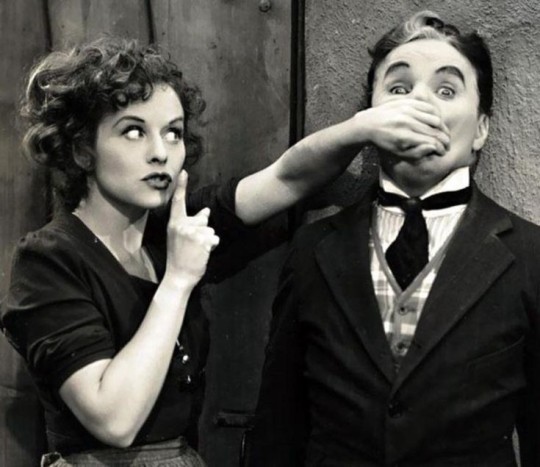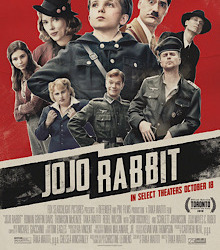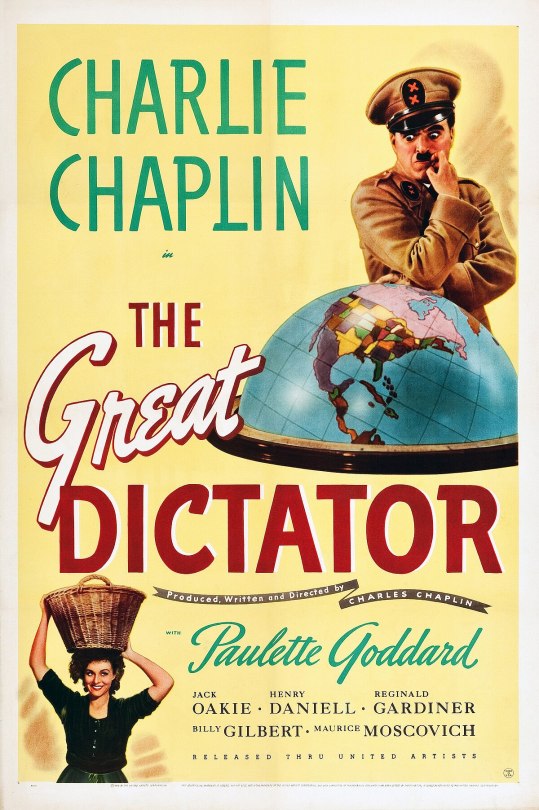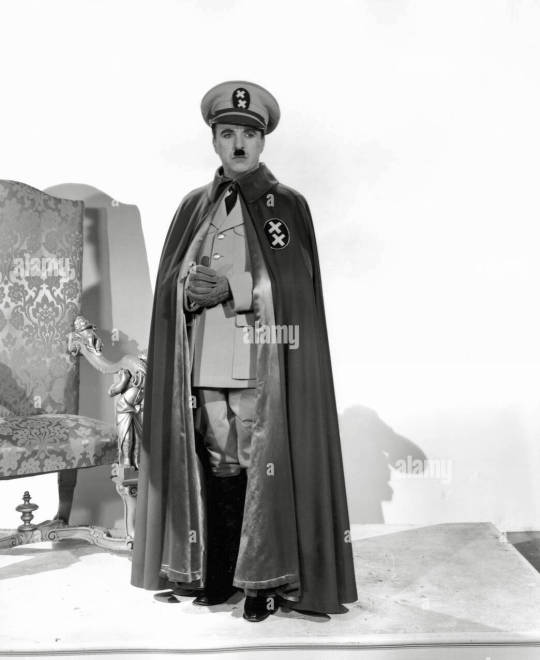#adenoid hynkel
Text
oh shit i think to me Edward vi is like Adenoid Hynkel becuase he is a methhead and dictator like I'm do you think he's bad that thing he did and thank you
Charlie Chaplin - Adenoid Hynkel Speech - The Great Dictator (1940) - YouTube
#edward vi#king edward vi#edward vi of england#tudors#memes#charlie chaplin#adenoid hynkel#neo nazis#adolf hitler#hitler#the great dictator#Nazism#internet memes
1 note
·
View note
Text
Tarcísio 🤝 Milei
"Parar a cidade" não é o mesmo que instituir ditadura, diz professor
Para Gustavo Badaró, professor de direito processual penal da USP, está errada a associação de crime de ataque ao Estado democrático de Direito, nesta situação. Ele afirma que se enquadram nesse tipo de delito pessoas que tentam "praticar um ato de grave violência e ameaças para tentar depor Poderes constituídos, um golpe de Estado".
Sobre a expressão "parar a cidade", citada pelo delegado no boletim de ocorrência, o professor afirma que "não quer dizer que você vai instituir uma ditadura", acrescenta Badaró.
Os manifestantes não estavam ainda praticando nenhum ato de violência. No máximo, atos preparatórios não puníveis. Estar indo para a manifestação portando esses utensílios não caracteriza o crime de tentar abolir o Estado democrático de Direito.
É lamentável que isso aconteça. Isso vai fazer com que todo mundo se sinta impedido de manifestar a liberdade de expressão.
(Gustavo Badaró, professor de direito processual penal da USP)

0 notes
Text

"The Great Dictator"
Ladies and gentlemen, this is a production that everyone must know and watch.
A film from 1940 that aims to satirize the approach of Hitler and Benito and the ideology of Fascism. It is quite bold for its time and raises important topics.
The film has a really great cast, including: Charlie Chaplin as Adenoid Hynkel and Tomani dictator, Jack Oakie as Benzino Napaloni, Paulette Goddard as Hannah, Henry Daniell as Garbitsch and others.
The Dictator is Chaplin's first fully sound film, which was initially supposed to be titled "The Dictator", However, Paramout had the rights to it and demanded $25,000 for it, but Charlie said he wouldn't pay that much for two words.
As we know, the main character is inspired by a real historical figure and in a country where this figure had such important influence, the film was banned until 1998. Charlie didn't speak German in the film, he just improvised, which is why the initial speech is not written in the script. During Hynkel's speech, the only intelligible word is "Schnitzel". Chaplin later joked that it was simply the only German word he knew. The idea for the film came from Chaplin's friend Alexander Kord, who first noticed that the Tramp's character resembled Hitler. Only then did Chaplin notice that he was born in the same week as Hitler, that he was almost the same height as him and the same weight.
Of course, September 1, 1939 is a terrible date. I am of Polish origin and my relatives experienced it quite hard, as did my country. However, I think that the film is really good and shows the views of the dwarf Austrian in a funny way, and the final speech is really very moving and worth remembering. It's very beautiful that someone dared to make fun of this monster.
Time for a summary.
Adenoid Hynkel comes to power in Tomania. He wants to take over the entire world, but the neighboring country, Austerlich, stands in his way. Hynkel plans an invasion, but he is short of money. He's trying to get money from Jewish bankers. When they refuse to grant a loan, he decides to take revenge on all the Jews. At this time, the dictator forms an alliance with Benzino Napaloni, the leader of Bacteria. The repression also affects the hairdresser, who looks very similar to the dictator. Stormtroopers set his shop on fire, and the barber himself is sent to a concentration camp, but escapes from there in Hynkel's uniform. Meanwhile, Adenoid Hynkel is hunting ducks. By accident, the dictator is arrested by the police and his place is taken by a hairdresser in Hynkel's uniform. He gives a peace speech at the rally.
The film is worth watching and I have it on DVD and I like to come back to it from time to time.





#actor#movie#old movies#movies#old cinema#1940s#the great dictator#charlie chaplin#jack oakie#paulette goddard#henry daniell
5 notes
·
View notes
Text
Eye Opening Concept of "The Great Dictator" And Chaplins Portrayl as one of the most Notorious Leaders
Dante Calabrese
This week, I saw the Charlie Chaplin film The Great Dictator, which has a lot of anti-Nazi overtones. It also relates to Dorothy B. Jones' book The Hollywood War Film: 1942–1944. In this passage, it is discussed how World War II-era movies portrayed the conflict and the issues they explored. Since not every nation participated in the war, the reading also touches on how the conflict has been misrepresented in movies.

There are numerous examples of anti-Nazi undertones in Charlie Chaplin's 1940 film The Great Dictator. Charlie Chaplin portrays two characters: Adenoid Hynkel, a mocking allusion to Adolf Hitler, and a Jewish barber. The story alternates between the lives of Hynkel and the Barber giving off a two story plot connected into one entire story alone. In the text of the book a quote by Jones, she states “During 1942 and 1943 the quality of home-front stories was consistently low. In most films, such activities were given a comedy treatment.” Another ideal quote from the text emphasising the connection with the film plot very well is “As a whole, they tended to stereotype them as the usual gangster “heavy,” identifiable by the fact that he either “heils Hitler” and speaks with a guttural German accent, or has slant eyes and hisses his “s’s””. Its very intersting the how this quote shows great emphasis and description of how Chaplin's acting and the other supporting cast portray these Nazis acting in the film. What this film does at the end of the day when taking in all of it is that a famous actor Chaplin himself took his artistic skills of turning one of the most horrible and dealiest Genocides by making it into a dark humor comedy as a means to help people digest this horrific realife events but at the same time spinning it into a new twist that the Holocaust had to endure, almost a means of coping with this. While excellent in the role, Chaplin also adds his own brand of humor by essentially making fun of himself. He conveys the idea that the guy he is playing, who is perceived by the Germans to be an all-powerful and idolized person, is actually just a horrible and stupid person by using his facial expressions and even stumbling over his sentences. He takes the oppertunity to mock humiliate Hitler and showing him as fool. Lastly Ironically history would repeat itself with the hollywood film industry with another film taking the same extent of comdey and foolishnes making fun of Hitler was the 2019 film, "JoJo Rabbit" with the director taking on the same role as Chaplin did being Hitler. The story follows as so, Jojo is a lonely German boy who discovers that his single mother is hiding a Jewish girl in their attic. Aided only by his imaginary friend -- Adolf Hitler Jojo must confront his blind nationalism as World War II continues to rage on.

Reference
Jones, Dorothy B. “The Hollywood War Film: 1942-1944.” University of California Press, University of California Press, 1 Oct. 1945, online.ucpress.edu/fq/article-abstract/1/1/1/37212/The-Hollywood-War-Film-1942-1944?redirectedFrom=fulltext.
3 notes
·
View notes
Text












Welcome to the 1940s!
This week we have Alfred Hitchcock's sole Best Picture winner Rebecca vs. Charlie Chaplin's The Great Dictator.
Rebecca's subtle suspense and cinematography provides an overarching feeling of unease. Critics praised all aspects of the film, with Variety (not included) applauding Joan Fontaine for her breakout role.
Rebecca was wildly successful at the box office, becoming the first film to play 6 weeks at the Radio City Music Hall. It also gave Selznick his second Best Picture win in a row.
It is definitely a film I need to go back and rewatch. I enjoyed it the first time, but that was at least 1-2 years ago, so the details are fuzzy. I do remember the unease!
The Great Dictator starts out our collection of 1940s war films. This satire comedy stars Charlie Chaplin in dual roles as "Adenoid Hynkel" and an unnamed Jewish barber. Chaplin's slow entry into full-sound films was equally as successful, selling out theaters in record time.
I'm not well-versed on Charlie Chaplin's work (yet), but this one is a hoot. There's an entire choreographed barber scene to Brahms' Hungarian Dance No. 5, and an obnoxiously long scene of Hynkel dancing with a balloon globe. It's great!
At the Oscars, Rebecca went home with Best Picture and Cinematography (black and white), making it the winner with the greatest number of losses to date.
The Great Dictator is still considered to be ahead of its time in both the use of satire and the subject matter itself. Charlie Chaplin took a brave stand at the time, not even considering the events that will occur later into WW2.
The refurbished insights for the 1940s include recognition by the National Board of Review's Top 10 Films and a screenplay nomination by the winner. These represent the attributes with the greatest disparity between winner and upset in the 1930s. The other three insights remain steady.
Unofficial Review: Just watch both. These two can't be compared.
#oscars#academy awards#12th academy awards#rebecca#rebecca 1940#the great dictator#the great dictator 1940#1940s#film#1940s film#oscarupsets
3 notes
·
View notes
Text

Charlie Chaplin (UK, 1889 - 1977)
Charlie Chaplin as “Adenoid Hynkel” , dictator of Tomania (Jack Oakie was “Benzino Napaloni”). The Great Dictator, released 1940.
5 notes
·
View notes
Text
The Great Dictator (1940)

Hindsight makes us realize that The Great Dictator was an even bolder film than it seems at the time. Hilarious, provocative and superbly directed, it’s the kind of satirical comedy that’s initially off-putting. You expect it to have been imitated many times. You go in thinking it will follow modern-day conventions but it never does. I doubt another picture like this will ever or could ever be made.
Set in 1938 in the fictional country of Tomainia, the country’s defeat during World War I has led to the rise of tyrannical dictator Adenoid Hynkel (Charlie Chaplin). In the Jewish ghetto, a barber (also played by Chaplin) wakes up from a coma, unaware of the antisemitic regime that rose while he was asleep.
The film was made in 1940, at a point when America was technically at peace with Germany and the true horrors of the concentration camps were not known worldwide. Chaplin went on to say that, had he been aware, he wouldn’t have made a film that made "light" of the situation. He had nothing to be ashamed of. This is a scathing criticism and parody of Adolf Hitler that shows the plight of the Jewish people as they were persecuted. It also happens to be a hilarious comedy that ends on an unforgettable note. Without giving too much away, we get to hear the Barber (or is it Chaplin?) break the fourth wall and speak to the audience. His message still resonates today and has an even bigger impact if you know the man's filmography.
At every opportunity, Chaplin (who also produced, wrote and directed the film - his first talkie) makes fun of the Nazi party. The Tomainian language is a mock German with recognizable words thrown in to sound extra ridiculous. Hynkel is a petty, power-hungry loony who is to be both feared and rightfully mocked, particularly when it’s revealed his regime has started running out of funds and must now resort to borrowing money from a Jewish Banker. His troops are as likely to be victims of his wrath as the citizens and his army of stormtroopers are often on the receiving end of jokes.
Capitalizing on his iconic mustache and his trademark slapstick, the picture contains many memorable scenes. I know what you’re thinking. He’s playing dual roles, so when are the barber and Hynkel comedically swap places? This is where the film doesn’t do what you expect. The Great Dictator is not a comedy of errors. It’s two stories set in the same country. The first is of a simple Jewish barber who falls in love with a neighboring woman (Paulette Goddard as the fiery Hannah). She helps the barber understand the severity of what is happening around him. The second is about a madman whose power will (hopefully) wane and whom anyone with any grain of sense would never follow. They just sort of happen to look identical.
Like many films from decades past you’ve heard of but haven’t yet seen, you will recognize moments from The Great Dictator here and there. Several iconic scenes have been spoofed in Looney Tunes, for example. That shot of Hynkel lovingly dancing with a globe is so good you must’ve seen it out of context somewhere. You’ll therefore expect to sort of know where the story is headed. You don't. Not really. This may be off-putting at first. Enough that you may not love the film on a first viewing but its brilliance is unmistakable. You won't be able to stop thinking about The Great Dictator. (On DVD, August 24, 2018)

#The Great Dictator#movies#films#movie reviews#film reviews#Charlie Chaplin#Paulette Goddard#Jack Oakie#Henry DAniell#Reginald Gardiner#Billy Gilbert#Maurice Moscovich#1940 movies#1940 films
3 notes
·
View notes
Text

Al Hirschfeld, 1940; Criterion Collection©
Madame Napaloni & Chaplin's Adenoid Hynkel
3 notes
·
View notes
Text
🤣🤣🤣Charlie Chaplin - Adenoid Hynkel Speech - The Great Dictator (1940)✡️✡️✡️😂😂😂inspired by "Honest" Peter "Absolutely Sane" Ehlers
https://berndpulch.org/2024/02/01/%f0%9f%a4%a3%f0%9f%a4%a3%f0%9f%a4%a3charlie-chaplin-adenoid-hynkel-speech-the-great-dictator-1940%e2%9c%a1%ef%b8%8f%e2%9c%a1%ef%b8%8f%e2%9c%a1%ef%b8%8f%f0%9f%98%82%f0%9f%98%82%f0%9f%98%82inspire/

0 notes
Video
youtube
Charlie Chaplin - Adenoid Hynkel Speech - The Great Dictator (1940)
1 note
·
View note
Text
Día de cine: “El gran dictador”, 1940, producida, dirigida y protagonizada por Charles Chaplin, quién también compuso la banda musical. Chaplin, “Charlot” para el cine, era un londinense emigrado a principios del s XX a la “meca de los sueños y estrellas” y tenía tantas habilidades que mareaba: director, actor, productor, humorista y compositor. Fue nominado al óscar en bastantes pelis, pero no le premiaron por ninguna de sus habilidades, salvo por una, la mejor banda musical en “Candilejas”, 1952, y un óscar honorífico en 1972. Chaplin conocía muy bien el mundo la farándula, nació en ella, conocía la pobreza y la búsqueda continua del sustento, y compartió ideales con la intelectualidad progre de la meca conocida por los “diez de Hollywood”, y a consecuencia de ello, en 1947 tuvo que poner pies en polvorosa y exiliarse en Suiza ante las inquietantes “atenciones” que el “Comité del cine” le estaba dispensando en la conocida “caza de brujas”.
Chaplin realizó e interpretó múltiples cortometrajes y pelis en las que inmortalizó a su personaje más universal; el vagabundo, Charlot, con sus modos refinados y ropa de caballero venido a menos, pero que mantiene la dignidad de su pobreza y un sentimiento de protección y defensa de los desfavorecidos frente a la violencia y fuerza de los abusones. Sus pelis son una mezcla de descripción y crítica social satírica y respuesta pseudoviolenta del personaje, pero más que violencia era expresión corporal exagerada, “slapstick”, algo así como bufonada o payasada..o charlotada; el personaje del vagabundo se ve siempre, sin buscarlo, envuelto en situaciones ajenas a él y de las que ha de salir gracias a su ingenio o a la charlotada, Chaplin también es capaz de reflejar la ternura y la compasión de la forma más emotiva “Luces de la ciudad”, 1931, o la crítica burlesca del capitalismo a través de los movimientos mecánicos de nuestro vagabundo en la cadena de montaje en “Tiempos modernos”, 1936.
Todas estas pelis, realizadas en tiempos del sonoro, en la mayor parte de su metraje seguían siendo silentes, mudas. La primera peli totalmente sonora de Chaplin es la de hoy, y en ella descargó toda su humanidad, rechazo a la violencia, al poder absoluto, al odio y a la discriminación, aprovechando un llamativo parecido físico con Hitler. Fue rodada a finales de 1936, de modo que algunas situaciones, vistas con la perspectiva que da el tiempo, son llamativamente ajustadas
Un humilde barbero judío que combatió con el ejército de Tomania en la Primera Guerra Mundial vuelve a su casa años después del fin del conflicto. Amnésico a causa de un accidente de avión, no recuerda prácticamente nada de su vida pasada, y no conoce la situación política actual del país, Tomenia, en el que Adenoid Hynkel, un dictador fascista y racista de la doble cruz, ha llegado al poder y ha iniciado la persecución del pueblo judío, a quien considera responsable de la situación de crisis que vive el país. Paralelamente, Hynkel y sus colaboradores han empezado a preparar una ofensiva militar destinada a la conquista de todo el mundo, pero en un momento determinado, el barbero y Hynkel son confundidos por las fuerzas de asalto que llevan al dictador a un campo de concentración y al barbero a una concentración de fuerzas de la doble cruz ante las que da su discurso final.
Es una peli llena escenas memorables: el frente de batalla de la Iª GM con la bala defectuosa; el violento y satírico discurso de Hynkel, al más puro estilo del “subaempujenestrujenbajen”; la batalla con las fuerzas de asalto a sartenazos desde la ventana; la batalla del dictador Hynkel y el dictador de Bacteria, Napoloni, caricatura de Mussolini, por ver quien se sienta en la silla más alta; el inolvidable baile de Hynkel con la bola del mundo al son de la “Obertura de Lohengrin”, de Wagner, o el afeitado de barba al son de “Danza Hungara nº 5” de Brahms. Es una peli inolvidable de denuncia sin ambages del fascismo, la violencia, la discriminación y el odio como instrumento del poder absoluto. Una peli que no pudo visionarse en España, por motivos obvios, hasta 1976, treinta y seis años después de su estreno.
“El gran dictador” es una peli conocida por todos, aunque no la hayan visto, y en la que Chaplin, autor del guión, vuelca todo un sentimiento de humanidad universal y lo expresa en la secuencia final de un discurso que aun, después de vista muchas veces, sigue poniendo la piel de gallina y un nudo en la garganta, un discurso que da fuerzas para rechazar la tiranía y defender la igualdad y la justicia.
Aquí dejo la secuencia final de una peli de obligado visionado, porque hay cosas que nunca pasan de moda, porque hay cosas por las que siempre hay que luchar.
Feliz semana
0 notes
Text

"The Great Dictator" 1940
6 notes
·
View notes
Text

r e m e m b e r i n g
Sir Charlie Chaplin KBE
16 April 1889 – 25 December 1977
⚘️
[pic: chaplin as the jewish barber pretending to be adenoid hynkel, the great dictator, 1940]
#remembering#actor#film director#Charlie Chaplin#died on this day#film#The Great Dictator#The Great Dictator 1940#charlie chaplin#character#as The Jewish Barber#Adenoid Hynkel
29 notes
·
View notes
Text
Chaplin's Style
In 1942, amidst the chaos of World War II, cinema became a powerful medium through which nations should think about their life and articulate their stance on the conflict. One extraordinary movie of that year changed into Charlie Chaplin's "The Great Dictator," a biting political satire confronting the growing chance of fascism and totalitarianism. The film's release coincided with a crucial period in the battle, and its message resonated deeply with the anxieties and hopes of the era.
One pivotal scene in "The Great Dictator" is the long-lasting very last speech introduced by Chaplin's character, the Jewish barber, who is incorrect for the dictator Adenoid Hynkel. In this effective moment, Chaplin immediately addresses the target market, passionately advocating for peace, knowledge, and humanity. By employing humor and satire, Chaplin cleverly used the studio machine to project the triumphing wartime narratives. The film's comedy style allowed Chaplin to carry his anti-fascist message in a way that engaged the target market emotionally, making them reflect on the absurdity of conflict and dictatorship.
As both the director and the lead actor, Chaplin played a pivotal position in shaping the film's wartime messages. His auteurship allowed him to infuse the film with his different fashion and perspective. Through his individual, he criticized the authoritarian regimes of the time while championing the values of democracy and compassion. Chaplin's unique mixture of humor and social commentary transcended traditional style obstacles, growing a movie that became wonderful and notion-frightening.
The film's compelling anti-fascist message was manufactured from the collaboration between Chaplin and the studio gadget, demonstrating the impact of a decided auteur inside the constraints of the enterprise. Combining satire, comedy, and heartfelt moments, "The Great Dictator" efficaciously challenged the triumphing wartime narratives and advocated audiences question the mounted order.
In contrast to different movies of 1942 that reassessed the way of life inside the face of warfare, "The Great Dictator" stood out for its boldness and creativity. It applied the medium of cinema to deliver a timeless message about the importance of humanity, tolerance, and know-how, making it a testament to the energy of film to form and replicate societal values in instances of crisis. Through Chaplin's imaginative, proactive, and collaborative efforts in the studio, "The Great Dictator" remains a landmark movie that resonates with audiences, reminding us of the enduring relevance of its wartime messages.
Quote: "Most of the films of the year 1942 dramatized this country's stake in the war by reassessing our way of life"
Brody Feigin

1 note
·
View note
Text
Today in political satire / World War II film history: on June 22, 1945 The Great Dictator debuted in Belgium.

Here's some Charlie Chaplin art to mark the occasion!
#the great dictator#adenoid hynkel#charlie chaplin#belgium#sticker art#postal sticker#sticker#political satire#anti fascist film#talkies#spoof movie#comedy drama#war comedy#black and white film#classic cinema#old hollywood#drawnderground#national film registry#satire#satirical comedy#pen drawing#fan art#40s movies#1940s#movie art#drawing#art#pop art#movie history
4 notes
·
View notes
Photo

1 note
·
View note